

Germany’s Wonder Stations
Photogravure Supplement
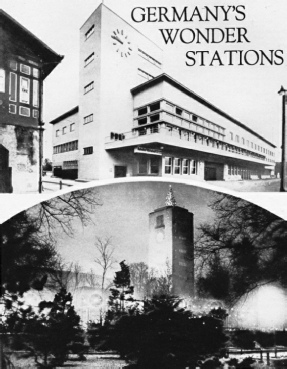
MODERN NOTE is struck by the upper of these photographs, which shows a side view of the new harbour station at Friedrichshafen. This station, which was opened on March 7, 1933, lies on the shore of Lake Constance. The waiting-
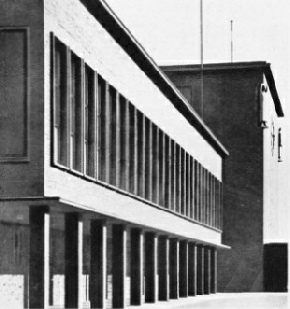
THE IMPOSING BUILDING AT DUISBURG, near Essen, in Westphalia. This new station embodies the post and railway offices in its long, severe front elevation. The construction of the building was begun in 1932. The total floor area of the large waiting-
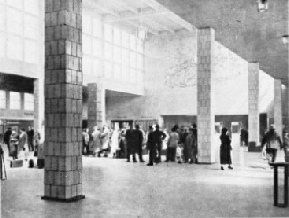
THE LOFTY CONCOURSE of the station at Duisburg. This contains the ticket-
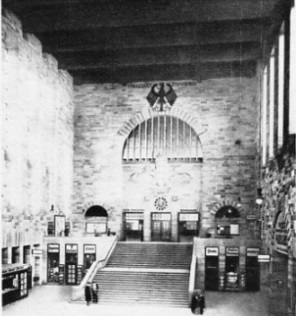 STUTTGART. The main booking-
STUTTGART. The main booking-
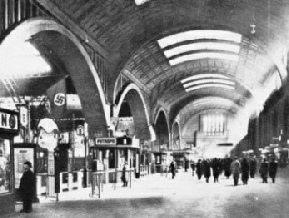
GERMANY’S LARGEST STATION is at Leipzig. The station building covers an area of 882,642 sq ft. The eleven platforms are reached from a transverse section 876 ft in length.
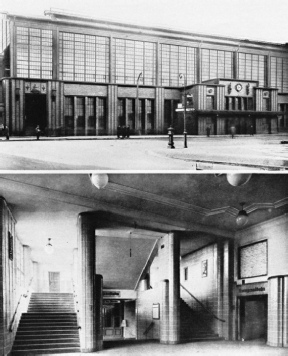
FRIEDRICHSTRASSE STATION, a large through station in the heart of Berlin. The line continues to the Schlesicher Bahnhof, which is the terminus of the lines coming from the east. The track at Friedrichstrasse is elevated and the waiting-
You can read more on
and
and
on this website.